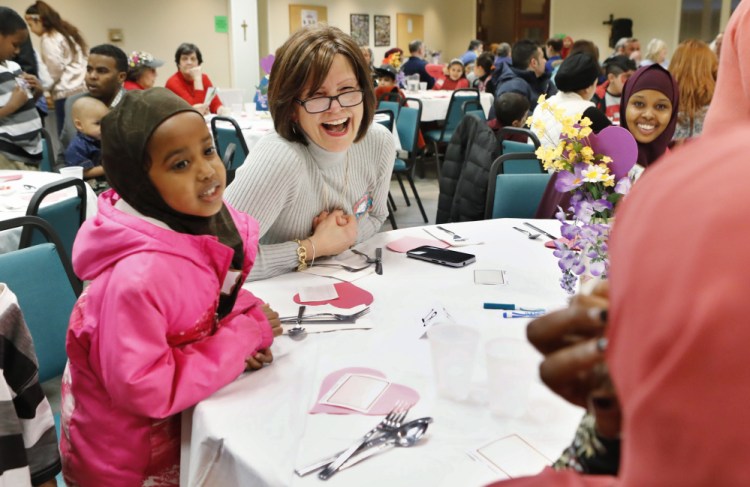Ongoing debates over terrorism and immigration policy have created an extremely distorted image of Muslims in the U.S. and fueled an escalating number of anti-Muslim hate crimes. But a recently released Pew survey found that Americans are capable of warming up to people of different faiths if they get to know them – and a recent interfaith dinner in Scarborough offers a model of how this can start to happen.
Anti-immigrant rhetoric was a staple of Donald Trump’s presidential campaign, and to make good on his pledge to ban Muslims from entering the United States, Trump issued an executive order barring travelers from seven predominantly Muslim countries and pausing the U.S. refugee program. That order is now on hold; the administration is writing a new one.
Meanwhile, the number of anti-Muslim organizations in the U.S. has nearly tripled, from 34 in 2015 to 101 last year, according to the Southern Poverty Law Center. The watchdog group also cited FBI statistics released last November that indicated a 67 percent increase in hate crimes against Muslims between 2014 and 2015, the year that Trump launched his bid for the White House. And even incidents that don’t fall into this category – since they aren’t seen as a direct threat to a specific person – can be chilling, such as the recent distribution of Ku Klux Klan fliers in Augusta and Freeport.
But as those who espouse bigotry have become more vocal, so have the people who want to bring the community together – like Monsignor Michael Henchal, pastor of St. Maximilian Kolbe Parish in Scarborough and several other Portland-area parishes.
After hearing on the radio that many Americans fear Muslim immigrants but few had actually met one, Henchal decided to hold the Building Bridges dinner at St. Maximilian Kolbe.
The 250 people who turned out included Mike Audet, a retired WGAN-AM news anchorman who wound up conversing in French with Nende Makyambe, a refugee from the Democratic Republic of Congo who works at Shipyard Brewing. Though Audet said he couldn’t imagine leaving “a war-torn country (for) a place where everything is different,” he and Makyambe actually have something major in common: French-speaking Mainers struggled to overcome the same bigotry that refugees here are facing now.
Events like Building Bridges don’t ignore that history, but they do emphasize the better side of the U.S. – our willingness to welcome newcomers and encourage their contributions – in a setting where all present can enjoy each other’s company. It’s a recipe for change that everyone should embrace.
Send questions/comments to the editors.



Comments are no longer available on this story